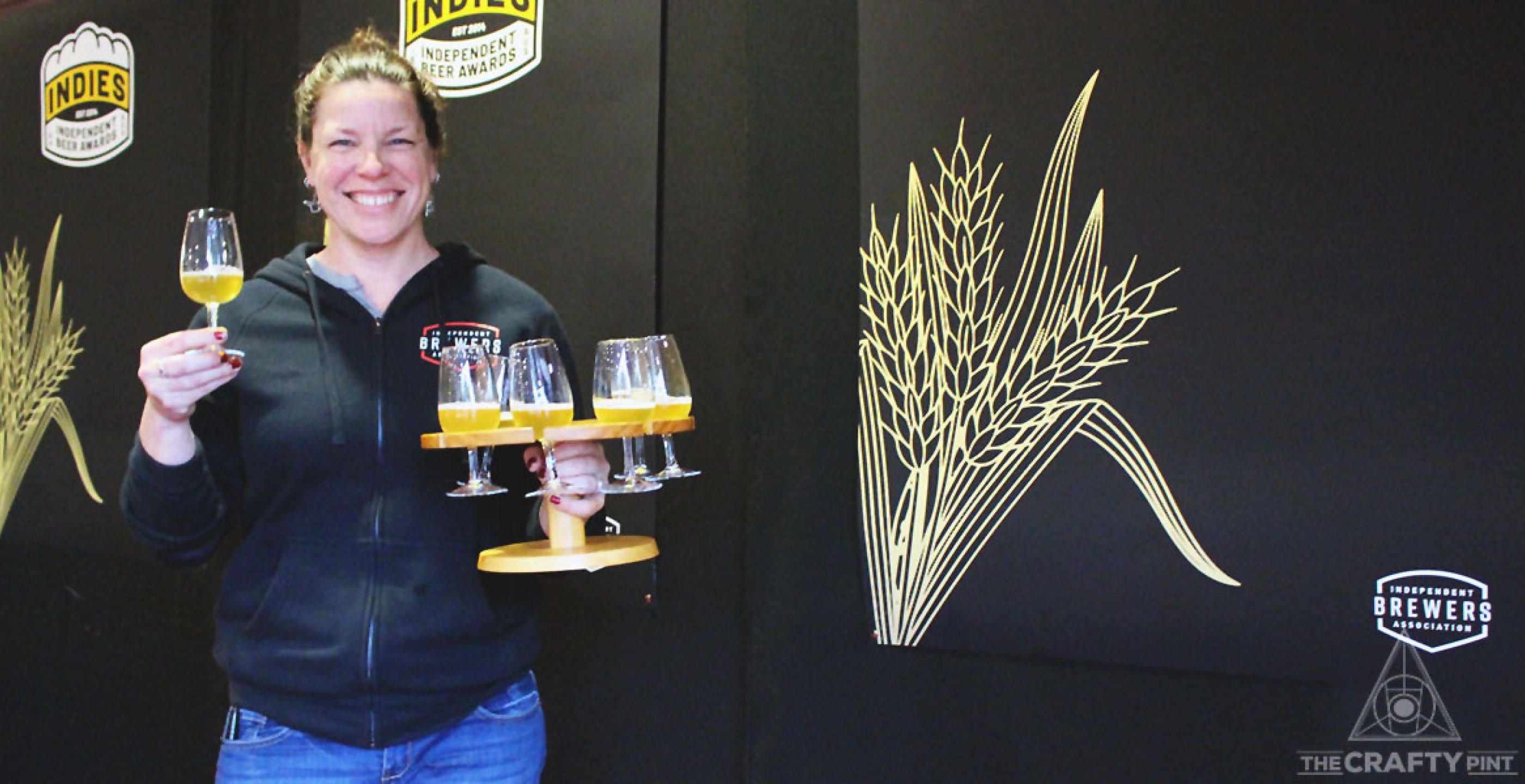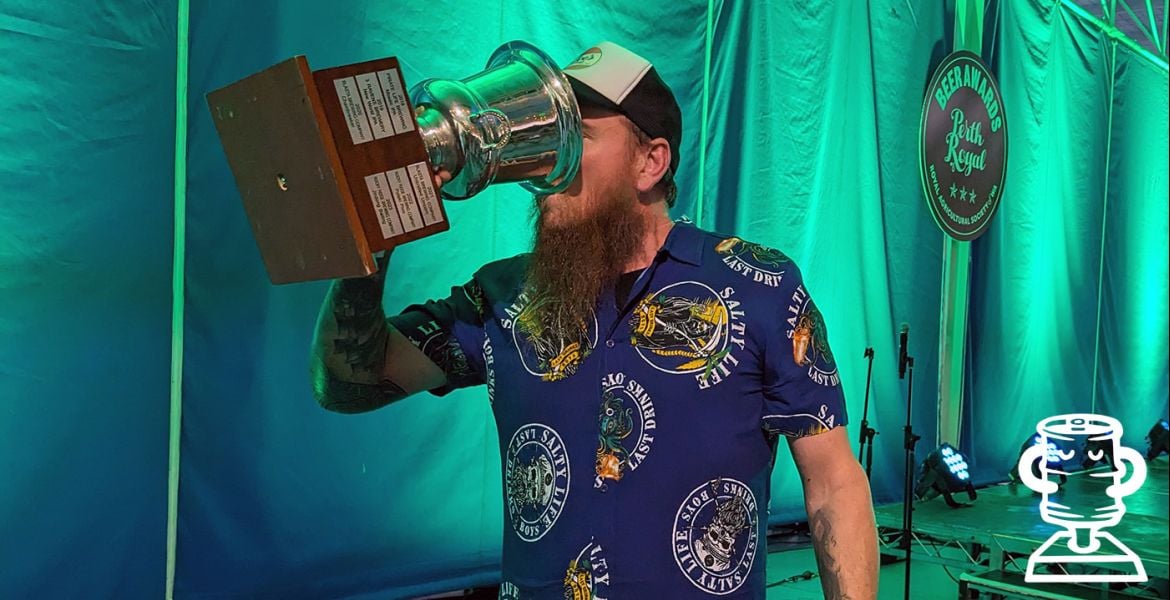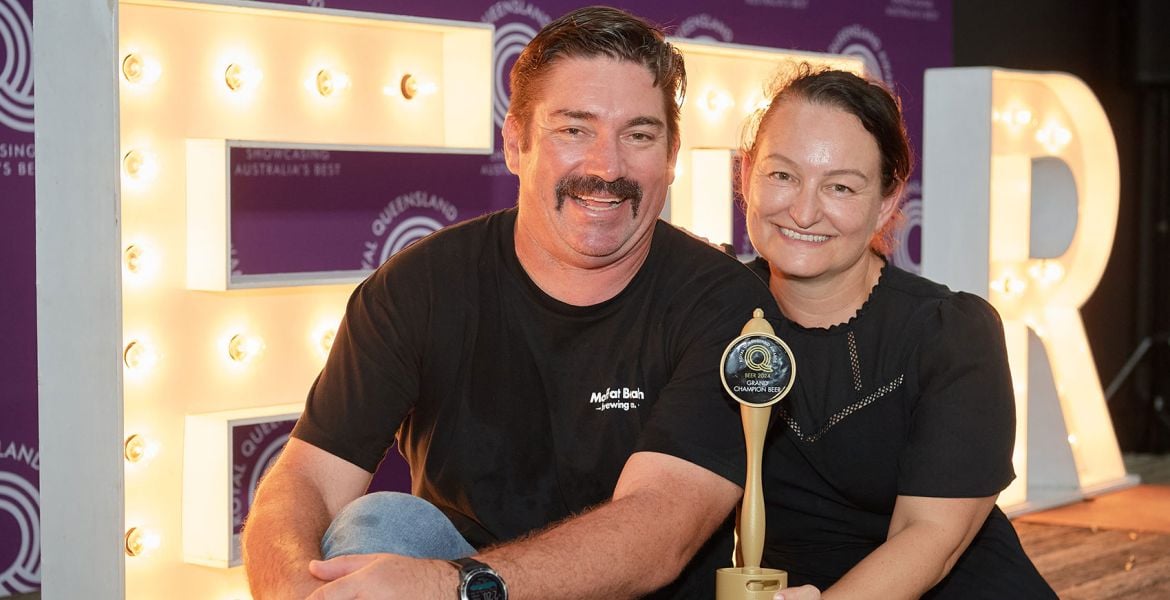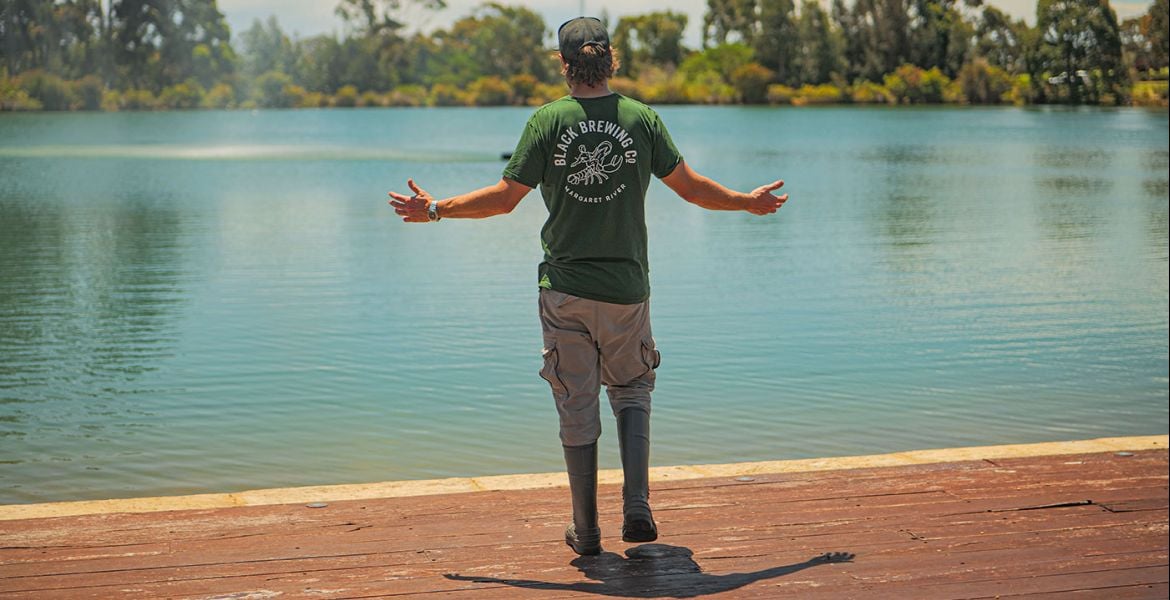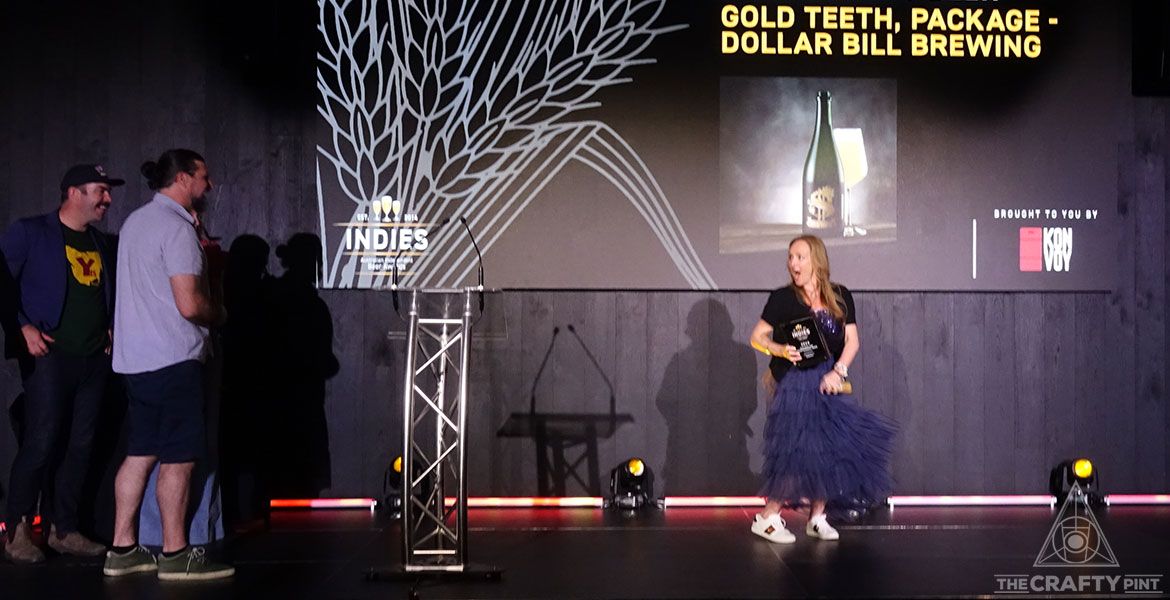There are few things that fire discussion among keen beer fans and those in the beer industry as beer awards. Whether it's those based on public votes or competitions judged by experts from across the globe, seeing your favourite brewery – or one unknown to most – pick up a trophy can be a cause for delight.
We've looked at what goes into being a beer judge in a past entry in our occasional A Day In The Life Of: series, but there's far more that goes into running a major competition than the judges. When it comes to events like the Australian International Beer Awards, the Indies, or the various state-based awards, one of the most crucial roles is played by the stewards.
But who are they? What do they do? Why do they do it? Do they get access to lots of free beer (hint: yes)? And how could you become one yourself? Will Ziebell went searching for the answers backstage at this year's Indies awards, in the company of Indies Coordinator Joslyn Erickson.
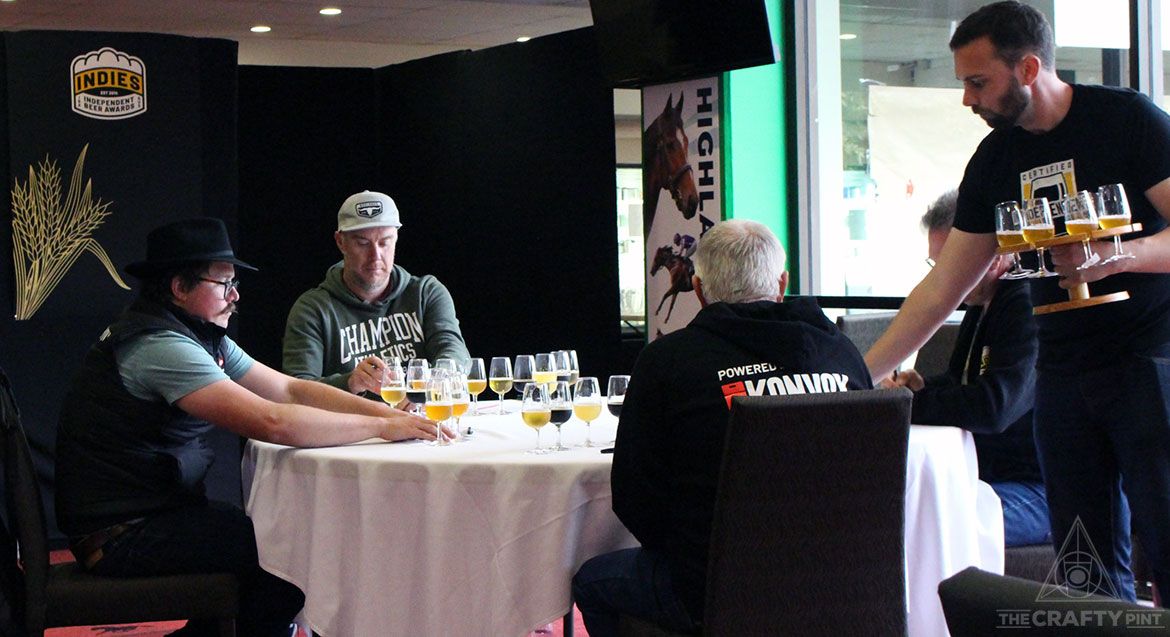
Across the country tonight, brewers and beer fans will be eagerly watching the results roll in at the 2022 Indies awards.
They'll be watching to see how their beers – or those of their favourite brewers – fare in a ceremony being streamed from a studio in Melbourne. Pulling it all together is the small team at the Independent Brewers Association (IBA), for whom this is the culmination of months of planning; as well as the live production, they're coordinating the multiple state-based parties which follow three weeks on from three days of judging.
In late September, at Moonee Valley Racecourse, a record 1,458 beers were put to the test by brewers and other beer experts from Australia and overseas, aided at every step of the way by a small army of approximately 50 stewards, charged with ensuring every entry was presented at the best.
Leading that army was Joslyn Erickson, co-founder of Gold Coast-based Hop On Brewery Tours, a Portland native and this year’s Indies Coordinator. It's a role that's similar to that of chief steward, although Joslyn says hers includes more planning and logistics than is typical of the role and sees her work as the boots-on-the-ground organiser throughout the course of judging.
Having spent a fair amount of time at this year's judging myself, I can confirm Joslyn is omnipresent: found back of house making sure beers are ready to be poured, thinking three steps ahead, or roaming the judging arena, keeping an eye on her team, as well as which beers are receiving medals.
It’s a role that holds back waves of chaos; we might joke that the countless hazy IPAs released every month look pretty identical, but imagine removing any connection to who made them, then pouring them alongside five facsimiles in matching glasses.
It requires intense attention to detail and is absolutely essential to ensuring the integrity of the awards. To say it’s a highly stressful few days doesn’t come close to capturing the occasion. And yet Joslyn brings a calmness to the judging and – as anyone who has ever been on one of her tours or shared a beer with her in the past would readily attest – plenty of good humour.
“It's just beer, we're not curing cancer,” she says of the experience during judging. “But I also understand the importance and the time and the effort that the brewers have put into making these beers, and submitting them and paying, so I want to ensure that the judges have the best circumstances to judge beer fairly."
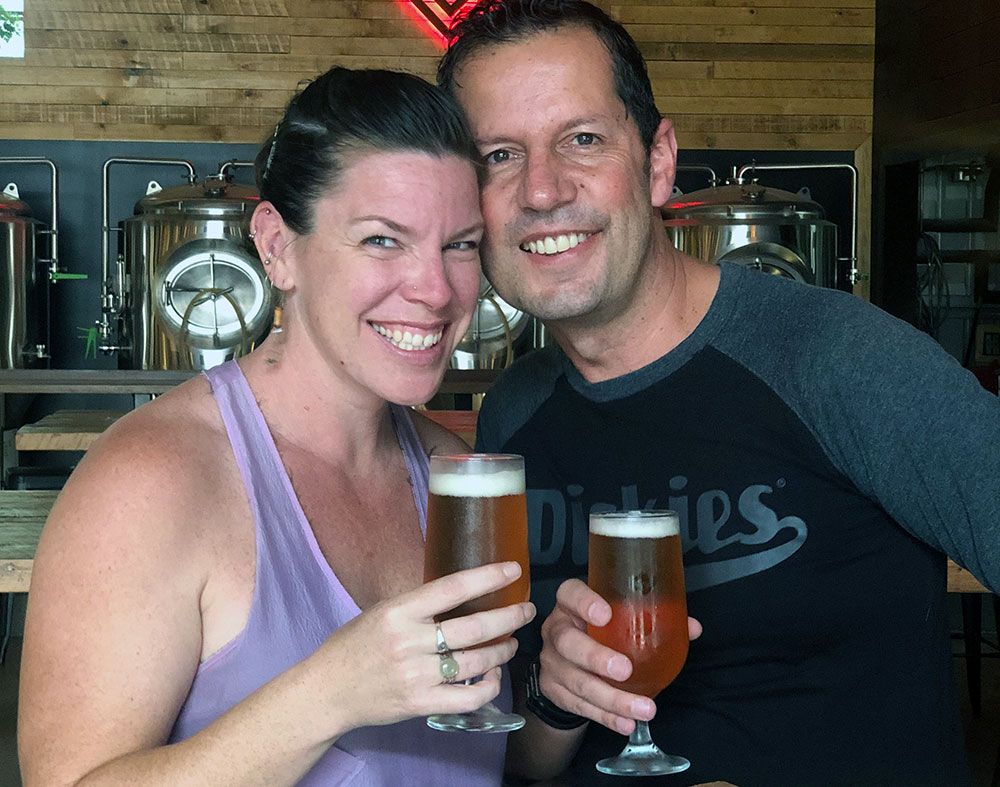
Her first experience stewarding came around the same time she launched Hop On Brewery Tours with partner Matt Farrelly (pictured above).
“I stewarded around six years ago, when it was still the CBIA and it was in Brisbane,” she says. “We’d pretty much just started the tours, so I saw it as a way to kind of understand the industry better and get to know some people.”
As well as building connections within the beer industry, she enjoyed the work and the fast-paced nature of running beer to judges' tables.
“I really like to be busy,” she says. “So even though it can be stressful those few days when you're stewarding and you're like always on your feet, you're always going.”
It was a few years later, with further experience gained at the Royal Queensland Beer Awards, that she stepped into the senior role at the Indies – an experience that came about due to the COVID situation at the time. With long lockdowns ongoing in Victoria and NSW, judging was taking place in Queensland, where Joslyn planned to work closely with industry stalwart Pete “Prof” Mitcham as his second in command.
“[Pete] texted me about three days before we were meant to start and said, ‘Well, they won’t let me into Queensland’,” she says, a text that led to her stepping up.
While it was a steep learning curve, she worked closely with IBA’s head of events Shev Kerin – well, as closely as she could with Shev also stuck in Melbourne – to make it work.
“The biggest hurdle was that Shev was in Melbourne and I was [in Brisbane] and our tech guys were somewhere else,” she recalls. “So things could go wrong here, I’d call Shev, she’d have to call someone else. But we had just a really great team up here, so we're able to pull it off and put it all together.”
After two years of continuous scrambling to overcome the challenges of border closures, this year’s judging saw things return to a level of normalcy. Judges flew in from across the country and overseas, while Joslyn made the trip to Melbourne.
Stewarding At Beer Awards
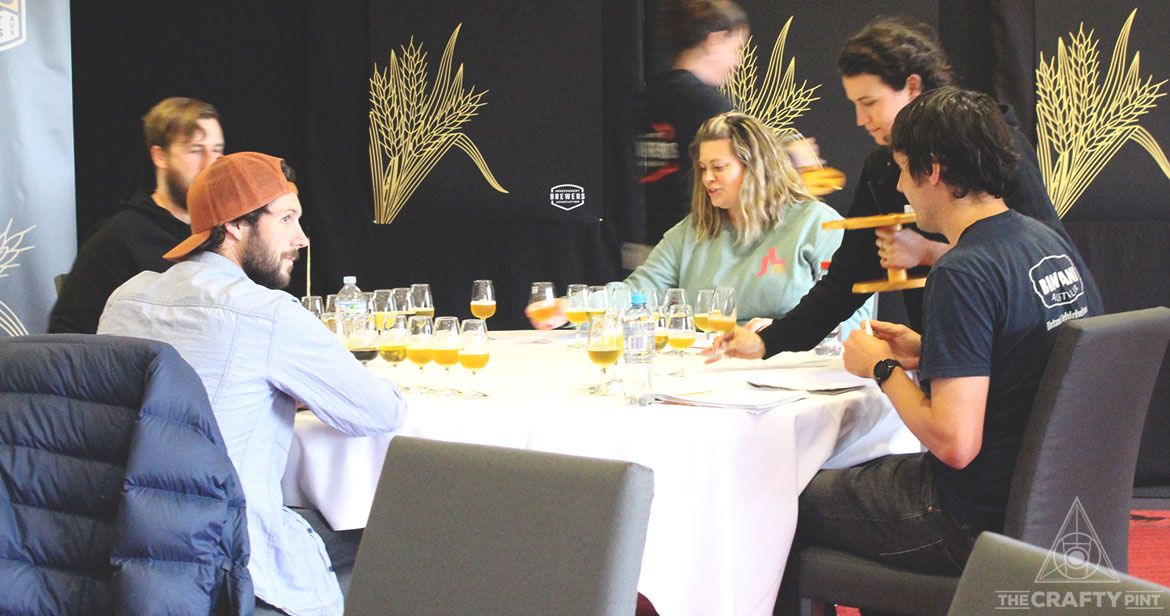
So, background established – both for Joslyn and the Indies – how does judging look for stewards?
Well, for one, in the case of the Indies it starts an entire week before the judging: at a cold storage warehouse in Melbourne’s outer southeast. There, you'd have found six stewards working from Sunday through to Wednesday, their days stretched a little longer when an extra public holiday was announced after Queen Elizabeth II passed.
“It starts with a bunch of pallets from all across the country of kegs and package stock," Joslyn explains. "And then breaking down each of those 1500 entries to which day it's being judged, whether it's the morning or afternoon session, and which panel is judging it.
“That serious attention to detail has to start at that point, because you're matching every entry number to Panel B or Panel F and to a day.”
The following Sunday, some 65 pallets of beers arrive at the Moonee Valley Racecourse, where they're moved into the engine room of the competition, filling fridges ready to be poured.
Watch Will's interview with one of the stewards, Nathan Munt of King River Brewing, here.
Largely, the stewards are volunteers; this year's lineup included brewery employees, hospo staff and homebrewers.
“There was a huge range of ages and skill levels and involvement in the industry,” Joslyn says. “And, for the most part, everybody caught on really quickly, which was fantastic.”
Before judging starts, an extensive manual is sent out to let stewards know what to expect, give them a general rundown of each day, and explain their responsibilities.
“There’s simple stuff like the fact they’re going to be on their feet for a good solid ten to 12 hours, so wear comfy shoes and be willing to pitch in,” she says.
“[But it’s also] things like not wearing perfumes or scented lotions or aftershaves, anything that's going to affect the sensory for the judges.”
With judges arriving at 8.30am each morning, stewards have to turn up an hour earlier so Joslyn and the IBA team can run them through the day. It’s a pretty privileged position – while judges know which liquid in front of them deserves a medal, the stewards know which beer was just poured.
"We get everybody there, do a briefing, go through the importance of the integrity of the competition, and confidentiality and what they're allowed to share," Joslyn explains.
“Then you chat to them about how much beer you need to pour in each glass. How to handle the glasses, making sure you're not touching where the brewers are, or where the judges are drinking from, obviously.”
It also means ensuring each beer is poured how the style dictates in a competition that includes everything from barleywines to delicate lagers and nitro stouts.
“So it may be something you pour vigorously,” Joslyn says. “It may be need to be poured quietly and maintain the sediment at the bottom of the bottle, while some of them will say serve at seven degrees, so you need to look ahead.”
A little more than 30 stewards worked the first day, with fewer required on the second. Joslyn aimed to have at least three stewards per judging table with more needed to change kegs and step into other roles.
“You always want to aim high and have more volunteers,” she says. “I’d much prefer to have extra people there in the morning to say, ‘Here’s some beer for your troubles for driving out to Moonee Ponds – sorry, we don’t need you.’
“That’s much better than have people stressed out the back because they’re doing the work of six people.”
They're long days, so what possesses someone to volunteer their time? For one, there’s what Joslyn calls the “siren song” of free beer at the end, and there’s the simple desire to help the independent beer industry that stems from the volunteers' love of good beer.
But it’s also a better way for someone to understand the process, get to know some of the country’s best brewers, and can be a pathway to becoming an associate judge – someone who is just starting out professional judging. And the ones who do it well aren’t always obvious to the judges until they need to be.
“It’s about being able to swap in a fresh bottle of water and [bring more] cheese and crackers without being noticeable,” she says.
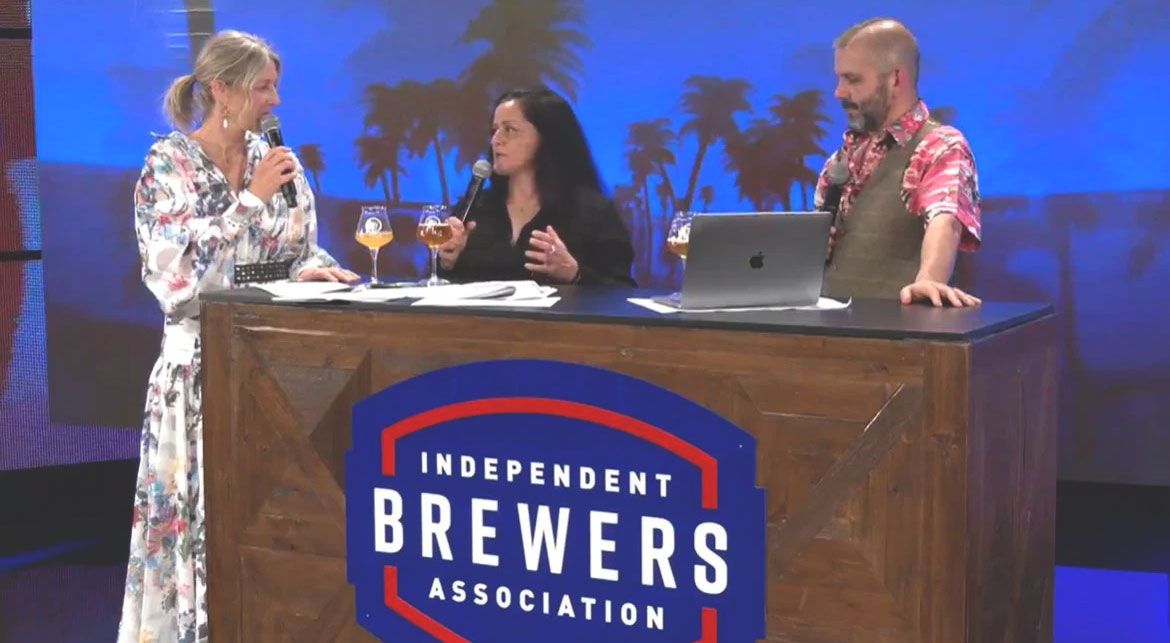
Judging: Day One and Two
Once judges arrive, the day kicks off with a single beer served to everyone to ensure their senses are what will be in tune. It’s an important start to a long day for beer judges and plays a key role for the stewards too. It lets them get used to the faces they’ll be working with: on each judging table, there’s a captain making the call on how many beers will come out in each flight and the general pacing of the day.
“That communication between the steward and the table captain is crucial and it can take a bit more confidence too," Joslyn says. "A lot of people are new to the industry and meeting brewers that are very well known – it can make you nervous.”
The team follows the old adage of “fail to prepare, then prepare to fail”, but there's still a need to be able to make decisions on the fly.
“You never want to plan too far ahead,” she says. “Because judges might make a change and do one thing before something else or take a break. It can also just get too late in the day and things get postponed.”
Add together the constant pouring of beers into hundreds of small glasses, ensuring the large flights brought before judges are impeccably presented and ordered, and maintaining absolute secrecy, and there’s a lot to stewarding that makes it sound like the hospo shift from hell. But the mood in that engine room is largely one of good spirits and good times.
“It's actually always quite jovial," Joslyn says. "People are there to pay attention but there is still that understanding that it's not solemn, so they chat to work together as a team. But it is always done with that sign of respect.”
Throughout the first two days of judging, the muted sound in the judging area is broken by the sound of pens being tapped on glasses, which means a gold medal has just been awarded. It’s something Joslyn is always listening for since these are the beers that may ultimately achieve the glory of a champion trophy.
“One of the things that we have to maintain and stay on top of is the gold medals as they come through. So, I would sneak out when the judges clink the glasses to know which one it was, and to make sure those were easy to get to later on.”
Judging: Day Three
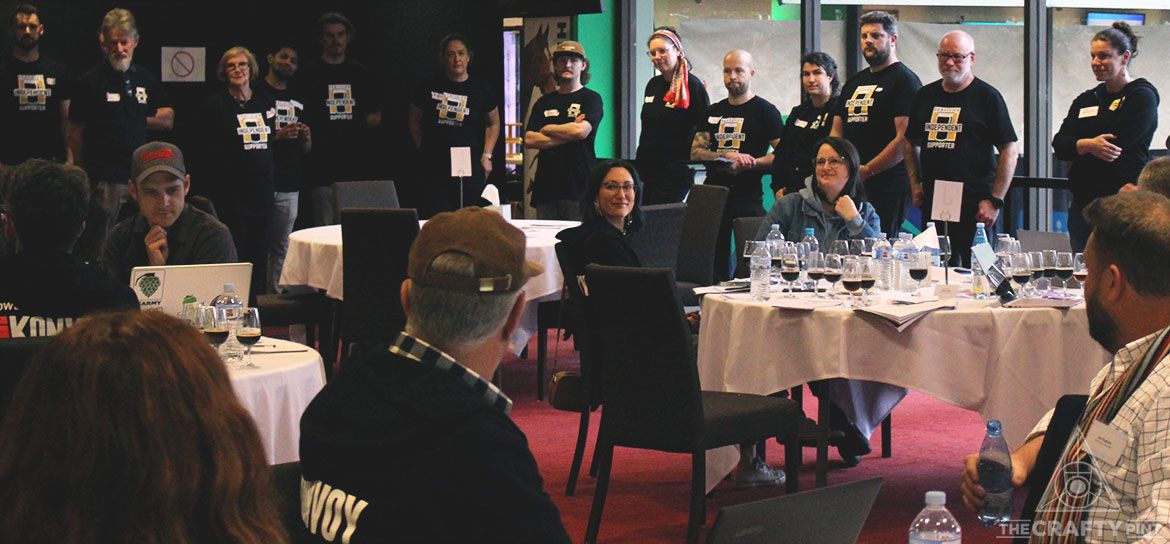
That initial round of judging is designed to see if a beer has any faults, fits into the style category a brewery chose, and whether it will receive a gold, silver or bronze medal. On the final day, however, things step up: judges are charged with deciding which golds will go forward to the champion round and which will ultimately be deemed the top beer in a category.
Since judges are no longer assessing and discussing whether a beer is in the right category and presenting as OK, good or great, things start to move much faster.
“When you move into those trophy rounds, they're already gold so they've already ticked all those boxes,” Joslyn says.
“It's faster because there's less discussion after it moves out of that initial tasting where all of the beers are scored.”
It means things can move very fast out back too – "really intense bursts " – with stewards needing to be ready to get their hands on any beers which judges request for further assessment.
By this point, there are also far fewer stewards around. There’s less beer to be assessed and fewer judges by the final day too, but the lighter workforce is also due to the sensitivity of what’s transpiring.
“We have fewer stewards, intentionally, on the day of the gold medal tasting,” Joslyn says. “That has a lot to do with integrity of the competition: the fewer people know, the less likely it is to get out.”
Ultimately, each best-in-class beer goes up against the others: Champion Lager versus Champion Juicy-Hazy versus Champion Fruit & Funk and so on. For those judges who are asked to pick the top beer, it’s a moment of intense focus. In any other circumstance, being presented with a bunch of beers deemed to be the best in the country would be a pretty good time but, here, there’s merely silence, studious concentration and intense consideration.
As judging concludes at the end of a long few days, a handful of stewards remain in the engine, enjoying the best beers in the country and the knowledge they're the first people in the world to know who's responsible for brewing them.
“I walked around the back at one point, and of course we still had things to do in terms of cleaning and organising, but everyone was just leaning on a table, with a small pour of something fantastic, sipping it and having a chat.”
The work isn't over for everyone, however. The next day features another long shift at Moonee Valley Racecourse to pack everything down. Yet, while your feet might be aching, life tastes pretty good in that moment.
As Joslyn puts it: “I just remember walking around the corner and going, ‘This is pretty cool, this is why we do it.’.”
You can join the stream for the 2022 Indies here from 8pm AEST. We'll have the full results and reaction from the night on the site as soon as it's all wrapped up.
You can find other entries in this series here. And if you'd like to become a beer steward, keep an eye out ahead of the country's awards competitions as they're always looking for new volunteers.



